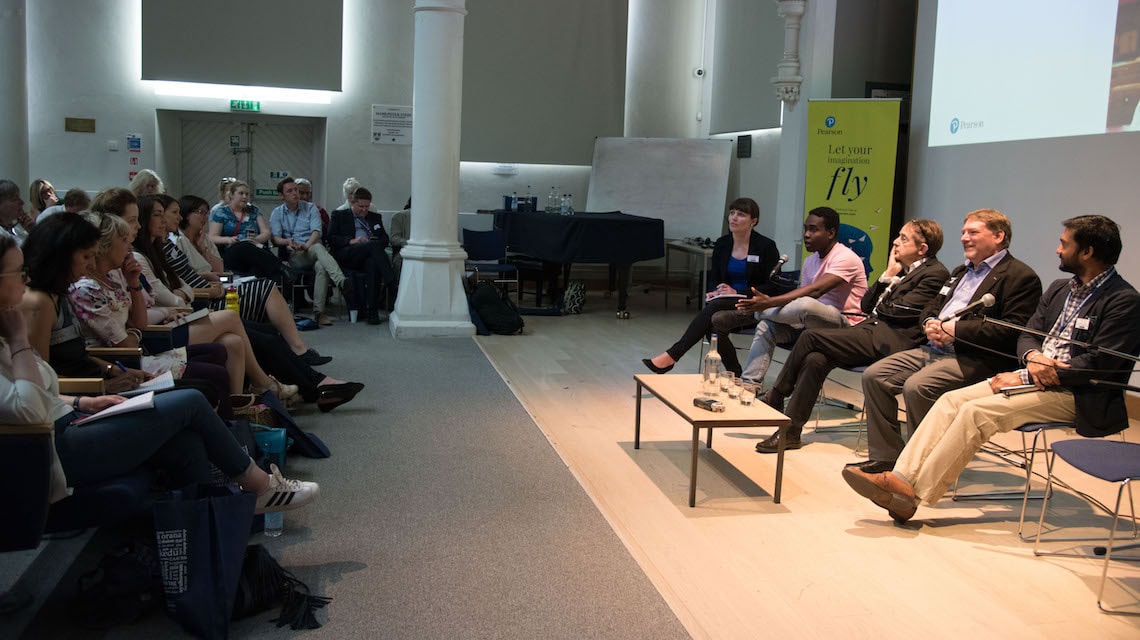Festival of Higher Education: Recap (Day 1)

Missed the first day of the Festival of HE? Oliver Latham recaps the sessions and perspectives from day one of the 2018 event.
“Education is ultimately about love and giving to the next generation what is important to us.”
- Stephen Tierney, Blessed Edward Bamber Catholic Multi Academy Trust
Sir Anthony Seldon used his opening remarks at the Festival of Higher Education to stress the importance of the festival feel at the event: no air conditioned hotel (instead a marquee outside), live music, open debates, lots of interaction and no ties. The festival did not quite go to mud and wellington boots a la Glastonbury, but it certainly made for a lively and interactive two days.
HEPI academic selection debate
HEPI opened the conference with what could be a divisive debate topic: This house believes that academic selection is wrong at 11 and still wrong at 18. We heard some fabulous speakers, including Matthew Taylor, CEO of the RSA and Laura McInerney, former editor of Schools Week, who were for the motion.
Matthew was passionate that universities should be non-selective, bringing together a much broader range of society. He argued that the benefits would be wide and many, including providing greater exposure for future leaders, expanding students perceptions and minds, increasing inclusivity and tolerance in our society.
Matthew argued that ultimately, selection means those who need to tackle the challenges in society do not experience people facing those challenges because they are segregated from an early stage. Matthew was followed by John Claughton, former Chief Master of King Edward’s School who, even though he was against the motion, seemed to present arguments against selection and ultimately abstained in the vote at the end of the debate.
"We give our students the least help at the start and the most help at the end.
We give the most help to our brightest students and the least help to those who are struggling."
- Laura McInerney, former editor, Schools Week
Laura McInerney stated: “We give our students the least help at the start and the most help at the end. We give the most help to our brightest students and the least help to those who are struggling.” This really struck me and poses interesting questions for universities and policy makers. She concluded with: “Just because we biologically select, it does not mean it is right.”
The value of a holistic education
We then had a number of sessions which focused on social mobility, educational transition and the curriculum, bringing in a number of interesting speakers who challenged the roles of schools, universities and parents, among others. As pretext to the comments, we heard consistently over the day that education is not simply about knowledge or assessment, but about providing children and students with a rounded education.
This was summed up best by Julian Astle from the RSA who said that education should be about “the head, the hand and the heart”. Stephen Tierney from the Blessed Edward Bamber Catholic Multi Academy Trust also spoke passionately on how “education is ultimately about love and giving to the next generation what is important to us”.
The overwhelming message was that there is clearly not one solution and the responsibility does not fall simply in one place, but that it requires a long term, community of actors to change and support social mobility and social justice in our education system and society.
Mary Curnock-Cook, OBE, summarised curriculum development very well, saying: “It is important to define what we need to learn and then decide how to assess it, rather than the other way around.”
The argument for artificial intelligence
Pearson led the closing session and shifted the emphasis with a session on artificial intelligence (AI). Dr Peter Foltz spoke about developments that Pearson has made in the world of AI, showcasing writing and assessment tools to help develop students and free up academics.
The following debate sparked real challenge, with voices highlighting the fears associated with AI, such as AI getting into the wrong hands, leading to major job losses rather than amplifying job success, or AI centrally influencing and biasing the political rhetoric.
Oladimeji Abidoye, as a student and author on the panel, spoke articulately and strongly in response, specifically highlighting that AI is morally agnostic and that it is the wielders who are morally responsible, which means that wielders need to put in the right framework and governance to protect, support and harness the power of AI.
On that note, we retired and went for dinner. Thank you to the hosts, the University of Buckingham, for the opportunity to discuss these themes.
About the author
Oliver Latham is head of strategic consulting for Pearson's higher education division.
